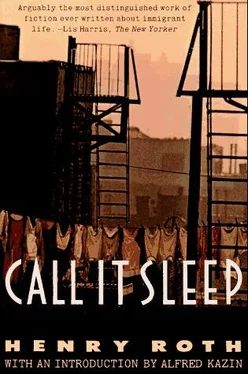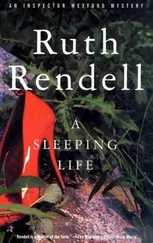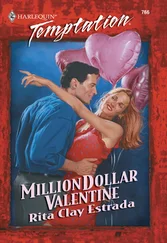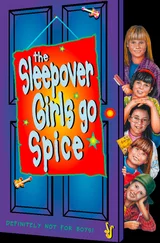“A guten yuntif!”
Deliverance was in the air — The Passover — deliverance from Egypt and from winter, from bondage and death!
— Still wet! Gee! Better go another block.
He crossed Avenue C and continued westward. Here and there children, already dressed in their best, were coming out of hallways and stoops. Gleaming in neat braid, broad ribbon, washed face, pressed Sabbath suits, they gathered in little groups apart from their ungroomed fellows — or approached with the new diffidence of cleanliness. At Avenue B, the open stretch of the park lay before him and beyond in the distance, the city’s towers pried chiseled edges between spume and clarity. He entered, sat down on a bench; and while he watched the children romp noisily over the brown and barren ground, mechanically aired his crotch with hand in pocket. Dry at last, rested somewhat, he rose, retraced his steps.
While seated in the park he had felt nothing but a lethargy, a dull vacancy, hollow as it was leaden. But now as he walked homeward his spirit uncurled again, expanded. All laughter had gone from him and all tears with it, and now only a deep untroubled gentleness was left, a wordless faith, a fixity, mellow and benign. With every step he took his body seemed to grow less his own, his limbs so light and rare, his legs drifted over the pavement with a tranquil, feathery ease. Even the swing of his arm by his side set up ichorous eddies along his bosom as though a hand were caressing him. The cool, limber April air was suddenly winy to his nostrils, teasing the breast into swelling. The sunlight on his face laved his cheeks with so soft a touch, it lifted the throat into its bounty, lifted it, and—
E-e-e! Twee-twee-twee. Tweet! Tweet! Cheep! Cheep! Eet! R-rawk!
Gee! Whistle. Thought it was that man. In the tugboat. In the shirt. Whistling. Only birds. Canary. That lady’s. Polly too — Polly want a cracker — is out already. On the fire-escape. Whistle.
Reluctantly, he neared his doorway, climbed the iron stoop, reluctantly, entered the hallway, sighed.
— Gee! Used to be darker. Funny. Gee! Look! Look! Is a light! In the corner where baby-carriages — No. Looks like though. On the stairs too. Ain’t really there. Inside my head. Better is inside. Can carry it. Funny! Ain’t so dark anyway. Ain’t even scared. Remember how I was? Way long ago? Scared. Used to run up bing-bang-biff. Hee! Hee! Funny I was. I’m big now. Can go up alone. Can go up slow, slow, slow as I like. Can even stand here and don’t even care. Even between the windows, even if nobody’s in the toilet, even if nobody’s in the whole house. Don’t even care. I’m big now, that’s why. Wonder if — Yea, all dry now. Can go in now. New underwear she’ll give me like the other kids already. For Passover …
— Funny. Still can see it. There. And over there. And over in the corner where it’s real dark. It sticks inside all the time, gee, can’t never be scared. Never. Never. Never …
— Fo-o-urth floor. All off! Gee, happy I’m!
He sighed.
I
TRANQUILLY the months had passed. Summer had come and the advanced grade and the glowing, incalculable and unlimned vista of the school vacation — that had remained unlimned. But David felt little disappointment on that score. Let other boys boast of prolonged visits to the seashore or to the mountains or to camps. For him the mere passing of time was a joy. The body was aware of a lyric indolence, a golden lolling within itself. He felt secure at home and in the street — that was all the activity he asked.
It was a day in that season when the sun bolsters a fallen wing with a show of soaring, a day of heat and light. Light so massive stout brick walls could scarcely breast it when it leaned upon them; light that seemed to shiver windows with a single beam; that crashed against the careless eye like rivets. A day when clouds played advocates for pavements, stemming the glare on tenuous bucklers, growing stainless with what they staunched. A day so bright that streets would slacken when shaded momentarily, façade and wall would slump as if relaxing, gather new strength against new kindling. It was late July.
Walking home from the free baths on 6th Street, David, already flushed and perspiring, wished he were back again. It had been cool under the showers. One could slide on one’s belly down the chill, slippery marble aisle for almost a block — at least it looked that long. But the moment one came out into the hot streets, the coolness vanished. Only one’s hair remained damp — and that was the worst part of it — the man at the door always ran his fingers through one’s hair and chased the repeaters from the line.
He trudged on, breathing through his mouth from time to time because the air had grown so hot it seemed to sear the nostrils. Although he had not yet crossed Avenue C, the street was so deserted and the sun so bright, he could see the glint on the brass bannisters before his house. He glanced at the clock in the corner drug store — it pointed to a quarter past nine. Past nine? Where was his father’s milk wagon? Good! He was gone. Despite his feeling of greater security these days, that same sense of relief still cropped up. Good! He didn’t have to think about him now. He could go upstairs now and have his second breakfast — his first before going to the baths had been a glass of milk. After that the day was his. He quickened his step—
What were they doing?
Near the curb, diagonally across Avenue D, squatted a circle of four or five boys, their sharp, eager cries prodding the drugged quiet of the street. One or two he recognized — they lived somewhere on 9th Street. And there was Izzy who went to his cheder. What was it they were all stooping over so intently? As he drew near his house, he saw rise from their midst a languid spiral of smoke, and a moment after, heard exultant cries. He tip-toed to catch a glimpse over their heads. A black box? Red? No. What? Their heads were packed too close. It deserved a minute’s consideration. He crossed the Avenue, drew near.
“I told yuh!” their shrill voices clashed. “Look how id boins! Now pud id in! Gimme!”
Between bobbing heads, he saw a rusty toy stove and pale yellow flames creeping out of it. Smoke spouted from all the cracks. The small oven door, also full of smoke, was open. Between the feet of the boy tending the stove, lay a brown paper bag, once large, now rolled into a tight scroll. Their faces were red. They jabbered, rubbing smoke-filled eyes. One blew intently at the flame.
“Watcha doin?” David tugged Izzy’s shirt.
“We all gonna ead good righd away!” the reply rushed at him.
“W’a’? Watcha gonna ead?”
“Pop-cunn! See?” He pointed to the rolled-up bag. “Nickel a bag. Id’s chicken cunn, bod the wagon wuz busted, so it spilled oud on de dock.”
“Oh!”
“Yuh gid somm if you waid.”
“Yea?”
“Yea! See de nice stuv we god? Kushy fond id on de junk yod.”
Kushy had unfurled the bag and was pouring the yellow grains into the oven.
“Shake it up!” they advised. “Give id a spread oud wid a stick. Now cluz id. Mum! Yom! Yom! I’ll ead a hull beg.”
“Led’s gid somm sult.” Kushy suggested. “Hey Toik, you live on de foist fluh! G’wan!”
“Naa! We’ll ead like dis!”
“Yuh see?” Izzy concluded. “Yuh’ll gid somm if yuh waid.”
Fascinated by the prospect, David wedged in among the rest and squatted down. The stove smoked lustily, growing redder and redder as now one and now another stoked it. All faces sweated profusely.
“Id’s hod!” they finally decided. “Betcha id’s cooked. G’wan open id Kush! Gid a stick. Wooy! Pop-cunn!”
Читать дальше












